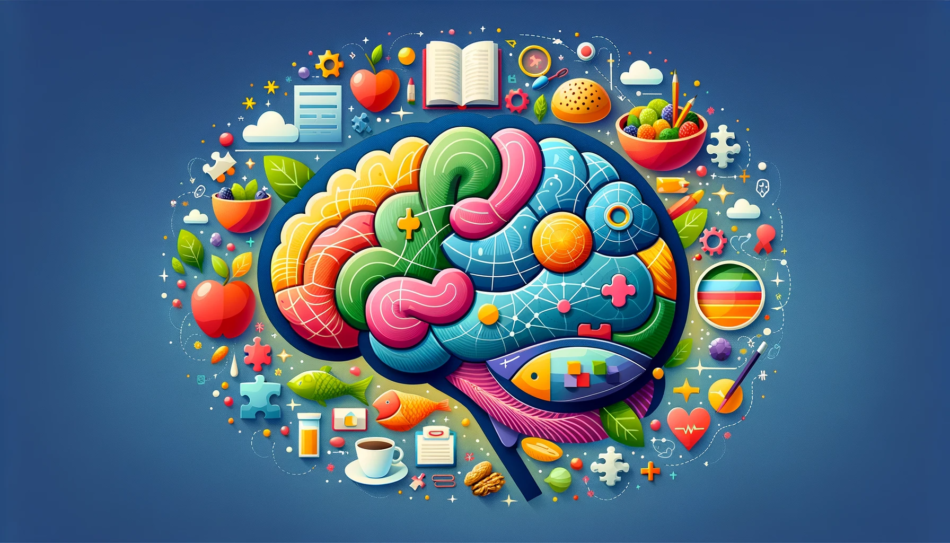As we age, one of the greatest concerns many of us face is the health of our brains. Cognitive function – our ability to think, remember, and learn – is a crucial aspect of our overall well-being, particularly in our later years. In this blog post, we will explore various activities and dietary choices that support brain health and cognitive function in older adults. Understanding these strategies can empower us to maintain mental sharpness and enjoy a high quality of life as we age.
The Brain-Aging Connection
Understanding Cognitive Decline
Cognitive decline is a normal part of aging, but it’s not inevitable. Factors like genetics, lifestyle, and environment all play a role in how our brain health evolves. While we can’t change our genetics, we can influence other factors to support our cognitive health.
Keeping the Mind Active
One of the key strategies for preserving cognitive function is mental stimulation. Engaging in activities that challenge your brain – such as puzzles, reading, learning a new skill, or even playing musical instruments – can help maintain and even improve cognitive abilities. These activities stimulate neural connections, keeping the brain active and resilient.

Brain-Boosting Foods
What we eat significantly impacts our brain health. Certain foods are particularly beneficial for cognitive function:
- Fatty Fish: Rich in omega-3 fatty acids, fatty fish like salmon, trout, and sardines are excellent for brain health. Omega-3s are known to build brain and nerve cells, essential for learning and memory.
- Berries: Packed with antioxidants, berries can delay brain aging and improve memory. Their anti-inflammatory properties also protect against brain aging and neurodegenerative diseases.
- Nuts and Seeds: A source of healthy fats, antioxidants, and vitamin E, nuts and seeds are associated with better brain function. Walnuts, in particular, have high levels of DHA, a type of Omega-3 fatty acid.
- Green Leafy Vegetables: Vegetables like kale, spinach, and broccoli are high in antioxidants and vitamins such as vitamin K, which is believed to support brain health and cognitive function.
The Role of Antioxidants and Anti-Inflammatory Foods
Antioxidants and anti-inflammatory foods play a crucial role in protecting the brain from oxidative stress and inflammation, which can contribute to cognitive decline. A diet rich in fruits, vegetables, nuts, and seeds, combined with healthy fats and lean proteins, can provide these essential nutrients.

Enhancing Cognitive Function Through Physical Activity
Exercise: A Pillar of Brain Health
Physical activity is not just good for the body; it’s also crucial for the brain. Engaging in regular exercise can have a profound impact on cognitive health:
- Boosting Blood Flow: Physical activities, especially cardiovascular exercises like walking, swimming, or cycling, increase blood flow to the brain. This enhanced circulation delivers more oxygen and nutrients, which are vital for brain function.
- Encouraging Neurogenesis: Exercise stimulates the production of neurotrophic factors, which aid in the growth of new neurons in the brain. This process, known as neurogenesis, is essential for maintaining cognitive functions such as memory and learning.
- Improving Mood and Sleep: Regular exercise can also improve mood and sleep quality, both of which are important for cognitive health. A good night’s sleep aids in memory consolidation, while a positive mood can enhance cognitive processing.
Stress Management and Brain Health
Coping with Stress
Chronic stress can have a negative impact on brain health, contributing to cognitive decline. Managing stress through techniques like mindfulness, meditation, or engaging in hobbies can help protect your brain and enhance cognitive functions.
Conclusion
Maintaining brain health as we age involves a combination of mental stimulation, a nutritious diet, regular physical activity, and effective stress management. By adopting these strategies, we can support our cognitive functions and enjoy a mentally active and fulfilling life in our later years.
-

1 Healthy Aging: The Benefits of Regular Social Interaction
-

2 Understanding and Managing Menopause Symptoms Naturally
-

3 A Guide to Age-Appropriate Exercise Routines
-

4 Understanding the Link Between Stress and Aging
-

5 Skin Health in Your 60s: Adapting Your Skincare Routine
-

6 Healthy Eating for Heart Health in Older Adults
-

7 The Benefits of Strength Training for Seniors: Building a Stronger and Healthier Tomorrow
-

8 Coping with Loneliness and Isolation in Older Age
-

9 Mental Exercises to Keep Your Brain Sharp
-

10 Senior Wellness: Incorporating Regular Massages into Your Health Routine


